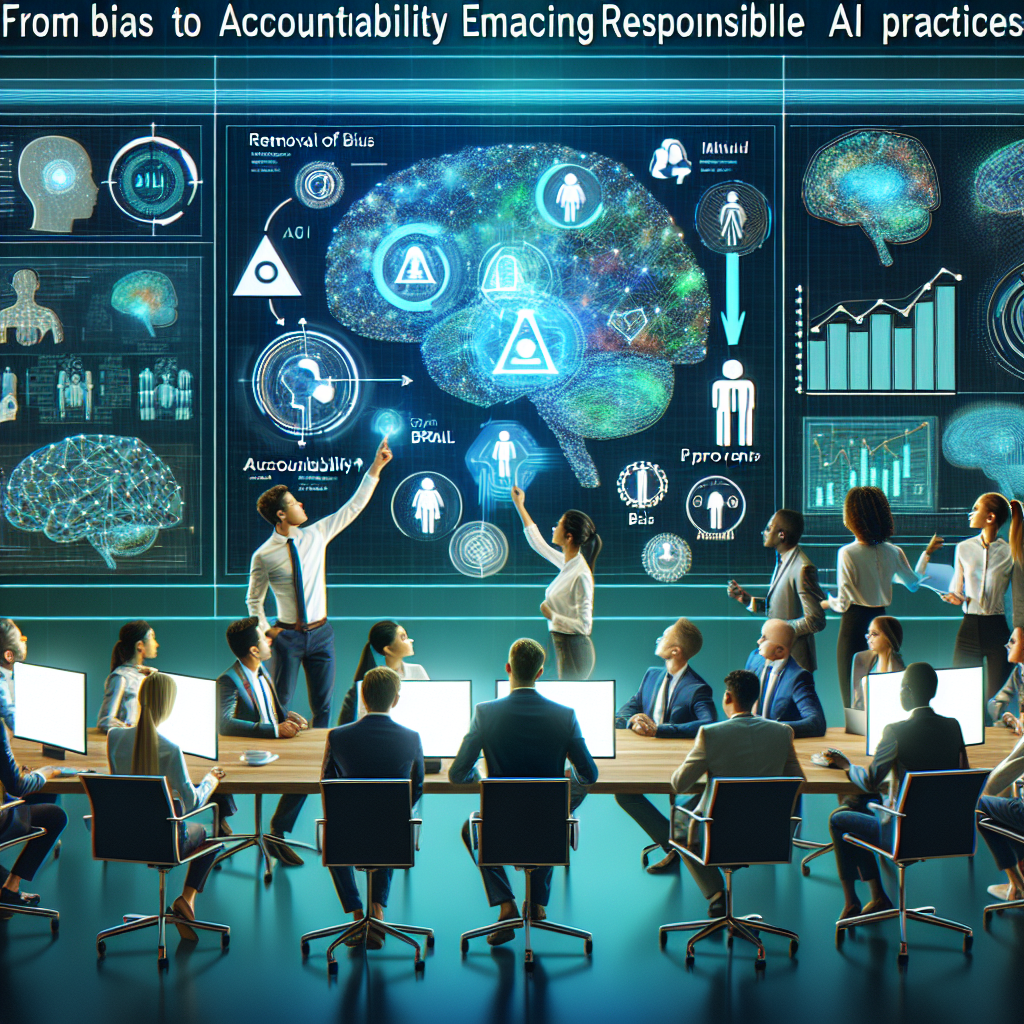Artificial Intelligence (AI) technologies have gained significant traction in various industries, revolutionizing processes and services. However, one major concern that has emerged is the potential for bias in AI algorithms. Biased algorithms can lead to discriminatory outcomes, perpetuate inequalities, and damage a company’s reputation.
Recognizing these risks, companies are increasingly focusing on implementing responsible AI practices to mitigate bias and promote accountability. In this article, we will explore how companies are navigating the challenges of bias in AI and embracing responsible practices to ensure fair and ethical use of AI technologies.
The Impact of Bias in AI
Bias in AI algorithms can manifest in various forms, including racial, gender, and socio-economic biases. These biases can lead to discriminatory decision-making in areas such as hiring, lending, and criminal justice, impacting individuals’ lives and reinforcing existing inequalities. Furthermore, biased AI systems can erode trust in companies and undermine their credibility.
Companies that fail to address bias in their AI systems not only risk legal repercussions but also face reputational damage and loss of customer trust. As AI technologies become more pervasive, ensuring fairness and accountability in their use is crucial for businesses to maintain their competitive edge and uphold ethical standards.
Embracing Responsible AI Practices
To combat bias in AI and promote accountability, companies are adopting a range of responsible AI practices. These practices include:
- Transparency: Companies are increasingly transparent about the data sources, algorithms, and decision-making processes behind their AI systems. Transparency helps to build trust with users and stakeholders and allows for greater scrutiny of AI systems for bias.
- Fairness: Companies are incorporating fairness metrics into their AI systems to detect and mitigate bias. Fairness metrics help companies to assess the impact of their algorithms on different demographic groups and ensure equitable outcomes.
- Accountability: Companies are establishing clear lines of accountability for AI systems, including governance structures and oversight mechanisms. Accountability ensures that decisions made by AI systems are transparent, auditable, and in line with ethical standards.
- Diversity and Inclusion: Companies are promoting diversity and inclusion in their AI teams to minimize biases in algorithm development and decision-making. Diverse teams bring a range of perspectives that can help identify and address bias in AI systems.
Conclusion
From bias to accountability, companies are taking proactive measures to ensure responsible use of AI technologies. By embracing transparency, fairness, accountability, and diversity, companies can mitigate bias in AI systems and promote ethical decision-making. As AI continues to shape the future of businesses and society, prioritizing responsible AI practices is essential for building trust, upholding values, and driving sustainable growth.
FAQs
Q: What are the consequences of bias in AI algorithms?
A: Bias in AI algorithms can lead to discriminatory decision-making, reinforcing inequalities and damaging a company’s reputation.
Q: How can companies address bias in their AI systems?
A: Companies can address bias in their AI systems by adopting responsible AI practices such as transparency, fairness, accountability, and diversity.
Q: Why is accountability important in AI technologies?
A: Accountability in AI technologies ensures that decisions made by AI systems are transparent, auditable, and aligned with ethical standards, fostering trust and credibility.
Quotes
“Responsible AI practices are not just a moral imperative but also a strategic advantage for companies looking to navigate the complexities of bias and drive sustainable growth in the digital age.” – John Smith, AI Ethics Expert


